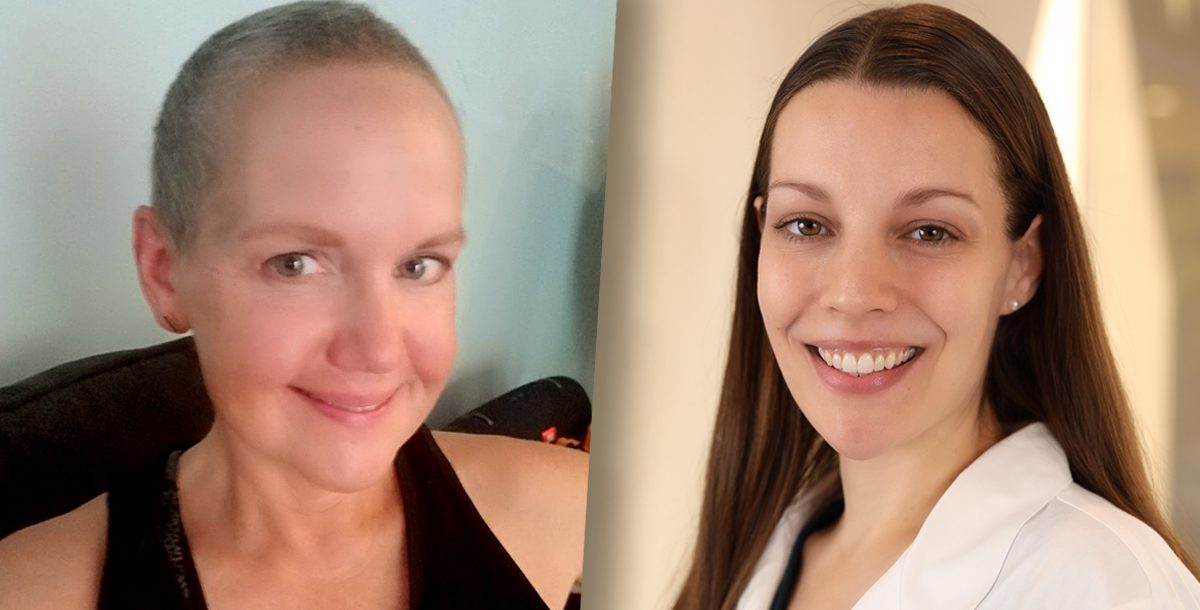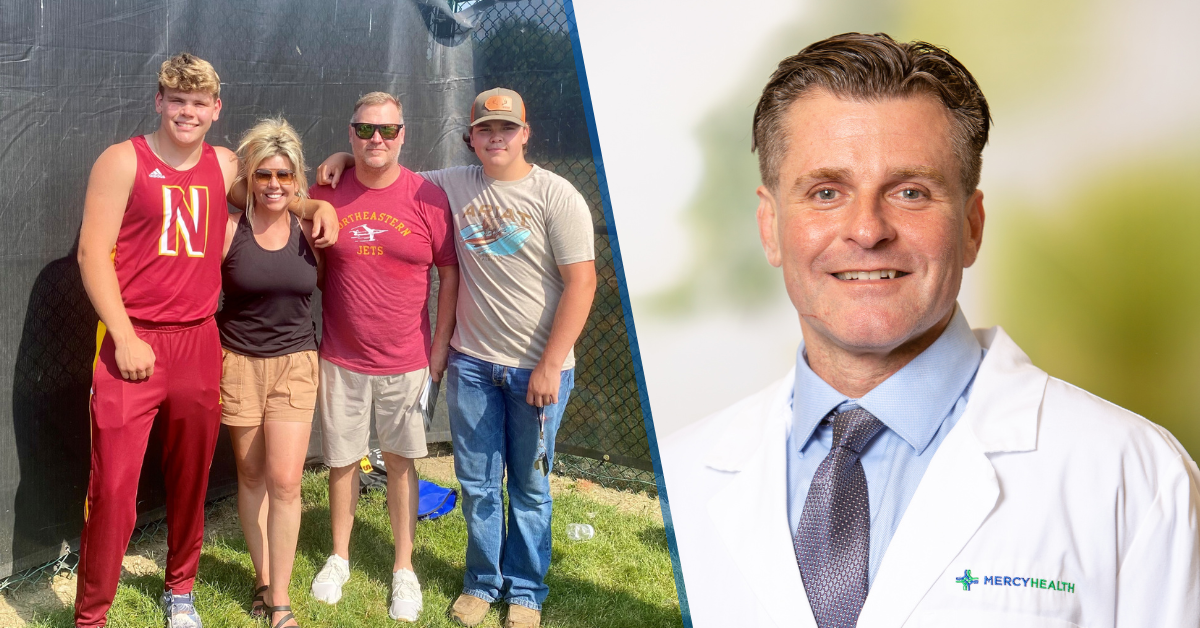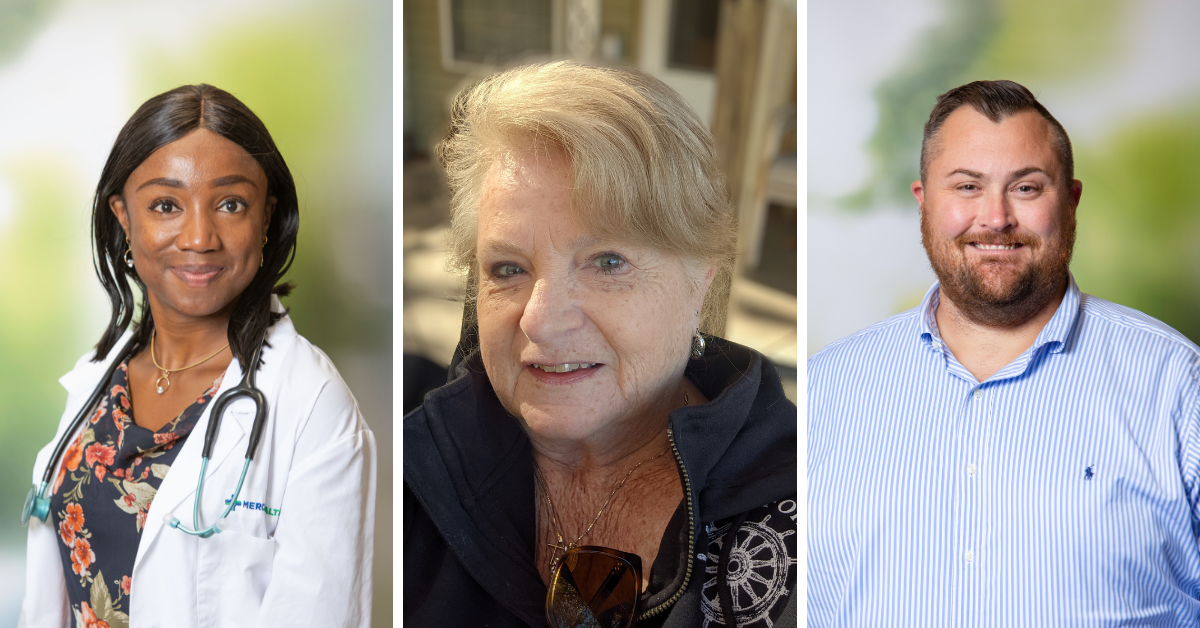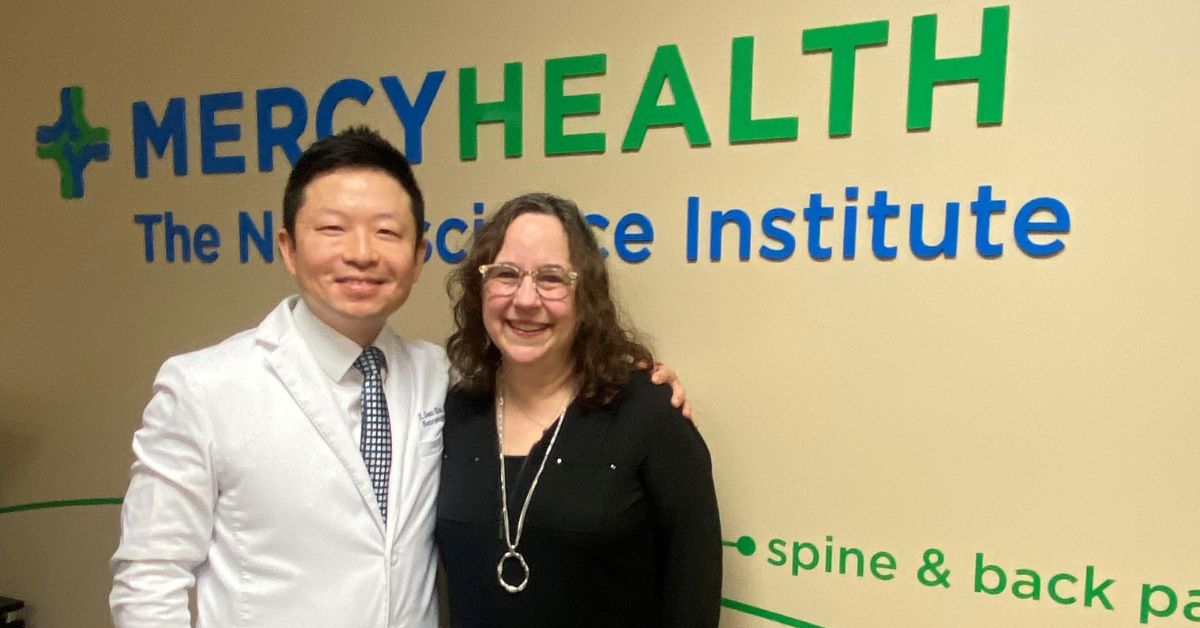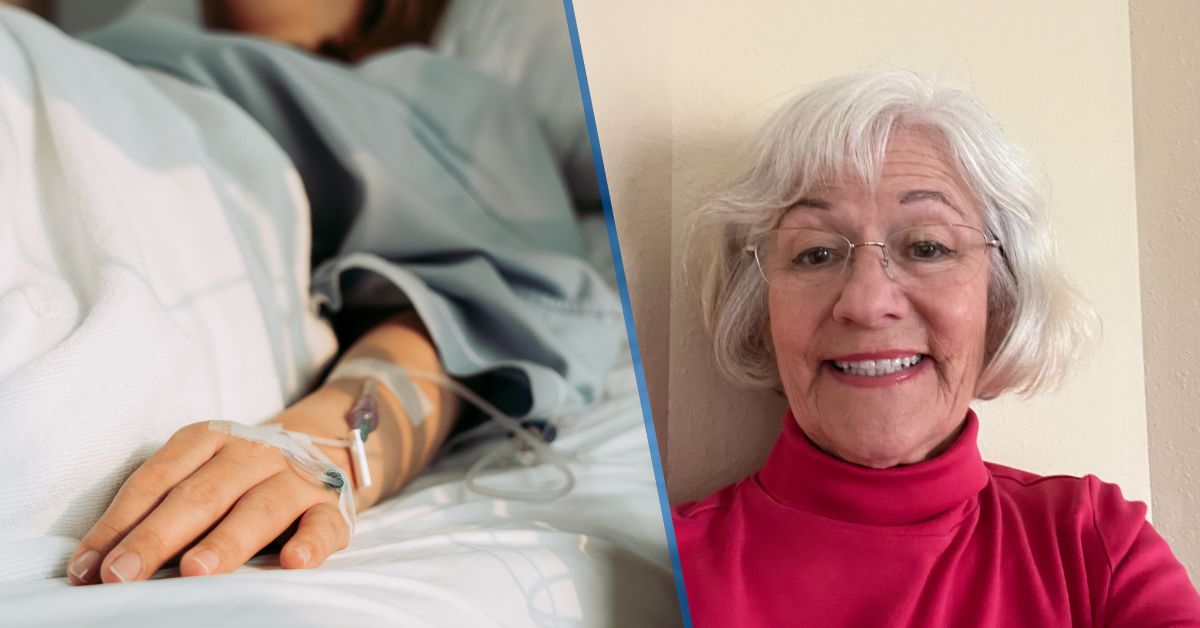Tara Yeranko, 44, knew she was due for her annual mammogram. She even kicked off the new year by scheduling her appointment.
“I had a routine annual mammogram in January 2021. I was a couple of months overdue because of COVID-19, but it was important to me to get it in,” Tara shares.
This turned out to be an important decision. What started as a routine mammogram took on a different tone when the radiologist read the screening.
“They noticed some calcifications on my mammogram, so I had to go back to get more images,” Tara says. “I was in the gray area and the radiologist recommended a biopsy. I had the biopsy at the Women’s Center at Mercy Health – Eastgate Medical Center on Jan. 11 and got a call on Jan. 13 to let me know that it was cancer.”
The breast center team scheduled Tara for an appointment with a breast surgeon and soon after, she met with Nicole Melchior, DO, one of our physicians who is a breast surgical oncologist.
“She went over the pathology from my biopsy with me and put me at ease that my breast cancer was treatable,” Tara says.
Tara’s biopsy confirmed that her cancer was invasive ductal carcinoma (IDC), the most common form of breast cancer. They discussed Tara’s treatment options, which included a lumpectomy or a mastectomy.
“I opted for a bilateral mastectomy,” Tara shares. “I wanted to be aggressive. I have five children at home. I wanted to knock it out and move on with my life.”
Tara had surgery on Feb. 19 at The Jewish Hospital – Mercy Health, where Dr. Melchior performed bilateral mastectomies. Neil Kundu, MD, one of our physicians who is a plastic surgeon, started Tara’s breast reconstruction work then, too.
“I absolutely and whole-heartedly believe I received the best care possible from Dr. Melchior, Dr. Kundu, their nurses and the nurse navigator,” Tara says. “The team was with me every step of the way and provided me with excellent care.”
After surgery, genomic testing indicated that Tara would benefit from having chemotherapy. From there, she underwent four rounds before completing her treatment. And today, she continues to progress.
“I had a six-month follow up with Dr. Melchior in September and everything was great,” Tara shares, noting that her family has been resilient, optimistic and supportive throughout all of this.
“Everybody is happy that I am through treatment.”
Tara will continue to see Dr. Melchior every six months for another year before going to annual appointments. Tara’s experience reinforced to her the importance of women getting their mammograms.
“To anyone questioning having a mammogram, I would say to have no hesitation whatsoever,” Tara shares. “It absolutely saves lives. The earlier the detection, the better your outcomes. I was fortunate to be diagnosed at stage 1, and there was no lymph node involvement.”
She adds, “it is scary to get tests done and you think, ‘This couldn’t possibly happen to me. I eat salad every day. I work out every day.’ It can happen to anyone – to you, your sister, mom or wife. It happens. Don’t put off getting a mammogram. Early diagnosis is key.”
Dr. Melchior agrees, saying “it’s very important to keep up with your annual screening mammograms. Mammograms are able to detect cancers when they are very small, often before they can be felt. If we are able to catch breast cancer at an early stage, it is often easier to treat. Sometimes, less aggressive treatment is required.”
And for women wondering when they should start having a screening mammogram, Dr. Melchior offers the following guidance.
“There are different recommendations depending on what guidelines you read. I follow the American Society of Breast Surgeon’s recommendations to start screening at age 40 (for average-risk women). The National Comprehensive Care Network, American College of Obstetricians and Gynecologists, the American College of Radiology and the National Cancer Institute agree with these recommendations. Mammograms have been shown to save lives. In Tara’s case, thankfully she started at age 40, and we were able to catch her breast cancer at an early stage. Women should speak with their primary care provider to discuss when they should start their mammograms.”
Learn more about breast cancer as well as the mammogram and breast imaging services we offer at Mercy Health.


